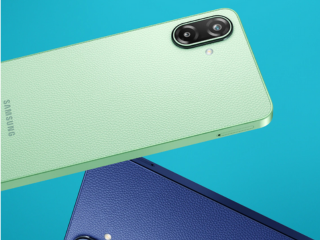Google, Facebook Parent Meta Battle It Out to Create Ultimate AI Translator
Facebook parent Meta announced on Wednesday that it has a block of 200 languages that could be translated into each other.

Meta's speech translation project works on far fewer languages at the moment
A man from South Africa speaks Sepedi to a Peruvian woman who knows only Quechua, yet they can understand each other. The universal translator is a staple of science fiction, but Google, Meta and others are locked in a battle to get as many languages as possible working with their AI models.
Meta chief Mark Zuckerberg announced on Wednesday that his firm now had a block of 200 languages that could be translated into each other, doubling the number in just two years.
Meta's innovation, trumpeted in 2020, was to break the link with English — long a conduit language because of the vast availability of sources.
Instead, Meta's models go direct from, say, Chinese to French without going through English.
In May, Google announced its own great leap forward, adding 24 languages to Google Translate after pioneering techniques to reduce noise in the samples of lesser-used languages.
Sepedi and Quechua, of course, were among them — so the Peruvian and the South African could now communicate, but so far only with text.
Researchers warn that the dream of a real-time conversation translator is still some way off.
Quantity vs quality
Both Google and Meta have business motivations for their research, not least because the more people using their tools, the better the data to feed back into the AI loop.
They are also in competition with the likes of Microsoft, which has a paid-for translator, and DeepL, a popular web-based tool that focuses on fewer languages than its rivals.
The challenge of automatic translation is "particularly important" for Facebook because of the hate speech and inappropriate content it needs to filter, researcher Francois Yvon told AFP.
The tool would help English-speaking moderators, for example, to identify such content in many other languages.
Meta's promotional videos, however, focus on the liberating aspects of the technology — amateur chefs having recipes from far and wide appearing at their fingertips.
But both companies are also at the forefront of AI research, and both accompanied their announcements with academic papers that highlight their ambitions.
The Google paper, titled Building Machine Translation Systems for the Next Thousand Languages, makes clear that the firm is not satisfied with the 133 languages it already features on Google Translate.
However, as the cliche goes, quantity does not always mean quality.
European primacy
"We should not imagine that the 200x200 language pairs will be at the same level of quality," said Yvon of Facebook's model.
European languages, for example, would probably always have an advantage simply because there are more reliable sources.
As regular users of tools such as Google Translate and other automatic programmes will attest, the text produced can be robotic and mistakes are not uncommon.
While this may not be a problem for day-to-day use lie restaurant menus, it does limit the utility of those tools.
"When you're working on the translation of an assembly manual for a fighter jet, you can't afford a single mistake," said Vincent Godard, who runs French tech firm Systran.
And the ultimate nut to crack is inventing a tool that can seamlessly translate the spoken word.
"We're not there yet, but we're working on it," said Antoine Bordes, who runs Fair, Meta's AI research lab.
He said Meta's speech translation project works on far fewer languages at the moment.
"But the interest will be in connecting the two projects, so that one day we will be able to speak in 200 languages while retaining intonations, emotions, accents," he said.
Get your daily dose of tech news, reviews, and insights, in under 80 characters on Gadgets 360 Turbo. Connect with fellow tech lovers on our Forum. Follow us on X, Facebook, WhatsApp, Threads and Google News for instant updates. Catch all the action on our YouTube channel.
Related Stories
- Samsung Galaxy Unpacked 2025
- ChatGPT
- Redmi Note 14 Pro+
- iPhone 16
- Apple Vision Pro
- Oneplus 12
- OnePlus Nord CE 3 Lite 5G
- iPhone 13
- Xiaomi 14 Pro
- Oppo Find N3
- Tecno Spark Go (2023)
- Realme V30
- Best Phones Under 25000
- Samsung Galaxy S24 Series
- Cryptocurrency
- iQoo 12
- Samsung Galaxy S24 Ultra
- Giottus
- Samsung Galaxy Z Flip 5
- Apple 'Scary Fast'
- Housefull 5
- GoPro Hero 12 Black Review
- Invincible Season 2
- JioGlass
- HD Ready TV
- Laptop Under 50000
- Smartwatch Under 10000
- Latest Mobile Phones
- Compare Phones
- Samsung Galaxy F70e 5G
- iQOO 15 Ultra
- OPPO A6v 5G
- OPPO A6i+ 5G
- Realme 16 5G
- Redmi Turbo 5
- Redmi Turbo 5 Max
- Moto G77
- Asus Vivobook 16 (M1605NAQ)
- Asus Vivobook 15 (2026)
- Black Shark Gaming Tablet
- Lenovo Idea Tab Plus
- HMD Watch P1
- HMD Watch X1
- Haier H5E Series
- Acerpure Nitro Z Series 100-inch QLED TV
- Asus ROG Ally
- Nintendo Switch Lite
- Haier 1.6 Ton 5 Star Inverter Split AC (HSU19G-MZAID5BN-INV)
- Haier 1.6 Ton 5 Star Inverter Split AC (HSU19G-MZAIM5BN-INV)

















